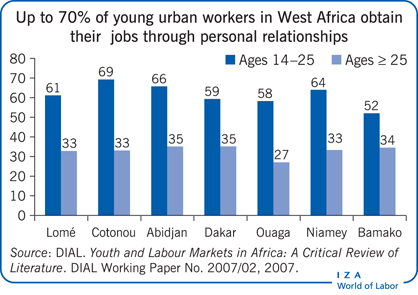Elevator pitch
Family and kinship networks are important in helping people get jobs and start companies, as statistics for developing countries show. Promising new research has begun to assess the positive and negative effects of these family and kinship ties on entrepreneurial success. To what extent, and why, are family networks used, and do they result in better economic outcomes for entrepreneurs? Results point to the need for policymakers to identify and emulate efficient informal networks in order to develop innovative support policies for vulnerable entrepreneurs, especially for those who are attached to weak or inefficient networks.

Key findings
Pros
For entrepreneurs in developing countries, family and kinship networks have the potential to generate learning spillovers.
Family and kinship networks may reduce uncertainties about market opportunities, the reliability of partners, and the productivity of employees, in particular family labor which needs less supervision by the entrepreneur.
Risk-sharing and informal credit arrangements can be enhanced by family networks.
Reducing transaction costs in various business relationships can be a positive result from family networks.
Family and kinship networks may promote innovation and enhance the returns to production factors.
Cons
Sharing norms with family and kinship networks may lead to business inefficiency if entrepreneurs are unable (or unwilling) to control the influence of relatives who make excessive demands.
Family labor is often less productive than hired labor.
Measuring and explaining the existence and effects of social networks on the performance of small businesses is not easy because of the endogenous nature of social interactions.
Because of the high degree of heterogeneity in the effects of family and kinship networks, sophisticated research and data collection designs are required to analyze the effects on firm performance.